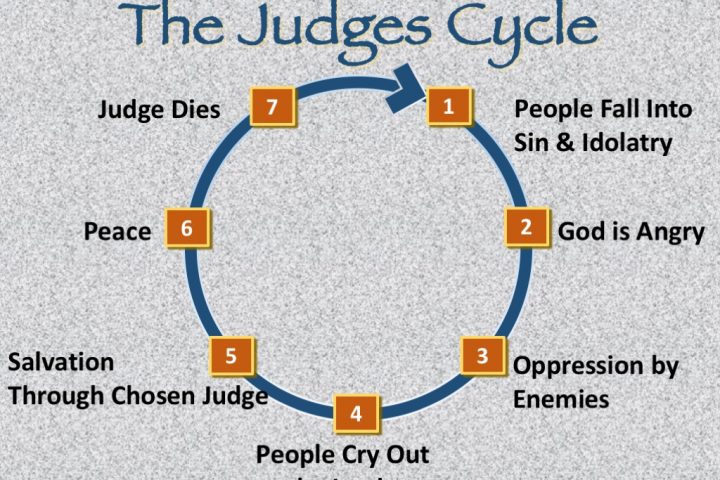Subscribe with iTunes, Google Podcasts Or, paste the feed URL into your favorite podcast reader (https://pbcc.org/feed/sermon-podcast/).
The Beatitude Effect
Matt 5:13-16 What kind of effect can Beatitude people have on the world? After the Beatitudes, Jesus goes on to describe that very thing by calling Beatitude people the salt of the earth and the light of the world. It has been said that ‘Christians are ordinary people making extraordinary claims.’ With these verses in Matthew, one could turn that saying around like this: ‘Christians are ordinary people about whom Jesus makes extraordinary claims.’ Jesus has a strange confidence in the ordinary people sitting in front of him on that hillside in Galilee. He has the same confidence in his followers today. And, through these two metaphors of salt and light, Jesus reveals his startling assessment of life on this planet. And, what he reveals is just as true today as it was back then. Join us this Sunday as we consider the Beatitude Effect on our culture and in our world.
The Blessed Persecuted
Matt 5:10-12 Blessed are those who are persecuted because of righteousness, for theirs is the kingdom of heaven. We now come to the eighth and final Beatitude, and it is the consequence of living the Beatitudes: persecution. You can almost hear Jesus say, “Sorry!” as he pronounces this one. Note that Jesus is not blessing those who seek persecution or those who are obnoxious or rude or proud. He blesses those who by find themselves encountering opposition simply by living a Beatitude life. The bottom line is this – the life Jesus provides us will provoke hostility. It provoked hostility for him, and it will provoke hostility for his followers (John 15:18-20). Jesus will go on to make this a double beatitude in verses 11-12. Maybe he knew we wouldn’t like it, and we needed to hear it twice? :) Join us this Sunday as we explore the different parts of this, the last, beatitude.
Being Makers of Shalom
Matt 5:9 In the wake of yesterday’s election, the culmination of a highly contentious campaign season, our text for this coming Sunday is the seventh Beatitude: Blessed are the peacemakers, for they will be called children of God. Jesus, being the ultimate peacemaker, calls us to not wage war, but to wage peace. He went and waged peace by going to a cross, in the process praying for his enemies. Paul will go on to say that as far as it depends on us, we are to live at peace with everyone. What an appropriate word for us for this week. Regardless of the outcome of the election, we are called to make peace wherever we go. It is many times not easy, but a cross is not easy either. In fact, the cross is the way to think about peacemaking. Once again, Jesus says that we are to deny ourselves, take up our cross daily and follow him. Peacemaking is one of the ways we take up our cross daily. In peacemaking, we deny ourselves and take great risk. But, so did Jesus. And, the reason peacemakers are called children of God is because they look like him when they make peace. God made peace with us through his Son at great sacrifice, and at great risk to his reputation. As his children, let’s do what we can this week to produce peace in the midst of difficult circumstances.
Purity of Heart is to Will One Thing
Jas 1:2 – 5:20 This Sunday we have a special privilege to hear from one of our dear friends, Mariam (Kamell) Kovalishyn, who was our 2012 women’s retreat speaker. She is currently a professor of New Testament at Regent College in Vancouver, Canada. Mariam has a M.A. from Denver Seminary and a Ph.D. from Saint Andrews. Much of her research has centered on the epistle of James, which involved extensive work in both Jewish wisdom literature and the gospel of Matthew. Mariam has co-authored a commentary on James, has published several articles in books and journals, and is currently working on a biblical theology of social justice. Mariam has a diversity of interests including music (both making and listening), hiking, skiing, and backpacking, art (painting and now pottery), and hanging out with her nephews and niece. She and her husband, Val, have been married for 2 and 1/2 years.
The Blessed Pure
Matt 5:8 Blessed are the pure in heart, for they will see God. We come to the greatest promise ever made by Jesus: the pure in heart will see God. The pure in heart are those who are unmixed at the center of their being. The pure in heart have a single, undivided devotion to Jesus. They are Jesus-oriented at the center of their being, leading lives of integrity before him and before others. Notice as well, that Jesus does not say, ‘perfect in heart’. The pure in heart are not perfect in heart, like David, who after his failures prays that God would renew in him a pure heart and renew a steadfast spirit within him (Ps 51:10). And, in the end, the pure in heart will see God. I believe that this is the greatest promise ever made by Jesus. But, in your perspective, is this the greatest promise he ever made?
The Merciful
Matt 5:7 As we continue our journey through the Beatitudes (and the theme of Living Right Side Up in an Upside Down World), we come to Beatitude #5 – “Blessed are the merciful, for they will be shown mercy.” We all like receiving mercy, but Jesus makes it clear throughout the gospels that we must show mercy if we ever hope to receive it. So is mercy free or not? And if not, how is THAT merciful?!
Right-side Up Appetites
Matt 5:6 Blessed are those who hunger and thirst for righteousness, for they will be filled. In this beatitude, Jesus is describing those who, because of their attachment to him, yearn for righteousness ‘as a deer pants for streams of water’ (Ps 42). As we walk down the road of life, Jesus intercepts us on the road. He moves into our lives and begins transforming our appetites. He begins to repair all of our broken cravings. He begins to heal all of our longings, which have been distorted as a result of sin. Instead of ultimately longing for other things, he causes us to long for righteousness instead. What is this righteousness he is talking about? I defined it a few weeks ago simply as ‘right-relatedness’. Righteousness is fundamentally a relational term and begins with our relationship with God, but includes our relationships with others, with ourselves, and with creation. In this beatitude, Jesus takes us right into what it means to be human, made in the image of God. To prepare for this Sunday, you can meditate on Psalm 63 and begin to think about what you really crave. What are your appetites? Are they right-side up or not?
The Blessed Meek
Matt 5:5 We tackle another Beatitude this week – the meek. Blessed are the meek, for they will inherit the earth. Jesus switches the price tags once again with this one. Jesus is saying that it is not the ‘survival of the fittest,’ but the ‘survival of the meekest.’ This is completely upside-down to how the world operates. Take a look at the executives at your company – would you describe them as being meek? Those who are at the top in the sports world – are they meek? Those at the top of politics – are they meek? Maybe they are, maybe they are not. It all depends on how you define meek. And, here, Webster’s dictionary does not help, but Psalm 37 does. So, in preparation for this Beatitude, it would be helpful to meditate over Psalm 37 because it gives us the best definition for meekness. Hope you can join us this Sunday as we aim to discover the blessedness in being meek.
Blessed Are The Mourners
Matt 5:4 As we continue our journey through the Beatitudes (and the theme of Living Right Side Up in an Upside Down World), we come to Beatitude #2 – “Blessed are those who mourn, for they will be comforted”. Yes Jesus actually spoke these words, which seem to make no sense at all, and yet, these Beatitudes are not commands to strive to keep but descriptions of what kingdom people look like. So if this Beatitude is true of us, then what kind of mourning is Jesus talking about and how can we possibly be blessed or comforted?
The Spiritually Poor
Matt 5:3 This week we will begin taking a Sunday for each Beatitude found at the beginning of Jesus’ Sermon on the Mount. In this famous passage, Jesus is describing what happens to people when they attach themselves to him. He goes up on a mountain and begins to teach them by describing the character traits found in people attached to him. Jesus starts with ‘Blessed are the poor in spirit, for theirs is the kingdom of heaven.’ This verse is the foundation of and sets the tone for the entire sermon. In fact, it is not a bad idea to read it before every other verse in the sermon. So, what did Jesus mean by ‘poor in spirit’ and what relationship does this verse have to Luke’s version of this Beatitude, which reads ‘Blessed are the poor,’ rather than ‘poor in spirit’ (Luke 6:20)? Hope you will join us as we dig into God’s Word together this Freedom Sunday.
Introduction to the Sermon on the Mount
Matt 5:1-10 Now that we have finished our Judges study, what were the judges lacking? In general, they were lacking character. The judges had charisma, but no character. This Sunday we will kick off a new series we’re calling ‘Living Right-Side Up in an Upside-Down World’ in which we will study The Sermon on the Mount. In this famous sermon, Jesus describes for us what his kingdom life is all about, and it all begins with character. What kind of character do the people of God have? Jesus tells us in the Beatitudes, some of the most famous sayings ever uttered. Some might think Hallmark came up with them, but no, Jesus said them. And, he said them to bring us life! Meditate over them this week and decide which one is your favorite, and which one is the most challenging for you.
Finding Your Way In The Dark
Judg 16:1-31 As we conclude out summer series with the book of Judges, we will examine how to further the kingdom of God when we are living in a world dominated by idolatry, greed and narcissistic leaders. In the days of the judges, men became passive confronting evil in the home and lacked courage go to battle for the sake of the nation. With a vacuum in leadership, heroic women took the initiative to fill the gap. Through the examples of Deborah, Ruth, and Hannah, we will discover the key character traits that bring light out of darkness and hope in the midst of despair.


